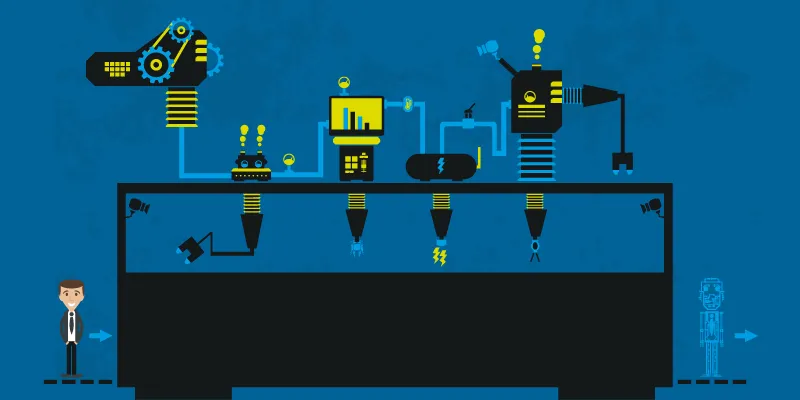Machine learning isn’t just a buzzword anymore – it’s here to stay
Machine Learning will come to change the way you work, earn a livelihood, purchase and consume goods and services.

Nearly every working professional and entrepreneur who keeps a finger on the pulse of the market would have heard or read the words ‘machine learning’ by now. For many of them, trailblazing pioneers at the forefront of new technologies, like Steve Jobs and Elon Musk, have become universal role models. Most would dream of following in their footsteps.
What one needs to realise is that what the personal computer and the smartphone were to Steve Jobs, machine learning (ML) could be for you – but you need to start now. Technology is already entering the market at a rapid pace, and the opportunities in this field are growing at an exponential rate. Working professionals, aspiring entrepreneurs, and business owners must adapt to ride the ML, instead of being swept away by it.
The machine learning renaissance
Between 2013 and 2017, machine learning patents grew at 34 percent, the third-fastest growing category, as companies and innovators spent the last four years expanding upon and improving this emerging technology. With this foundational work done, the International Data Corporation predicts that spending on ML and artificial intelligence (AI), in general, will grow from $12 billion in 2017 to $57.6 billion by 2021. Deloitte Global forecasts the number of ML applications will double in 2018 compared to 2017, and double again by 2020. ML is already used for predictive text inputs on cellphones, in auto-correct software for text inputs in word processing or messaging applications, and to give recommendations on your next Facebook friend or Amazon purchase.
This is just, however, the beginning. The more data these systems can access, the more they can learn and the more they become capable of. The use of these algorithms as a part of digital marketing will enable dynamic messaging to leads and customers, targeted at eliciting the desired response from them. This is known to generate 20 percent better returns from lead generation at present, and with Google debuting an AI-driven ad platform, businesses can use ML to up-sell the right product to the right customer at the right time. It can also help e-commerce reach new heights by not just helping the consumer find the right product, but also by optimising logistics, supply-chain management, and delivery timelines to improve customer satisfaction.
Coupled with an ecosystem of IoT sensors, ML can be at the core of creating fully automated factories to revolutionise manufacturing. This will help bring greater efficiency to the production process by integrating the scheduling and input of raw materials with deadlines for output delivery, thus driving down waste and cost to a remarkable degree. ML could automate operations, accounting, manufacturing, marketing, and the electronic sale of a product. In doing so, it is likely to replace a lot of legacy systems and players unable to compete with the massive competitive edge offered by error-free, constantly working, and always learning AI-driven systems.
What does this mean for us?
ML will come to change the way you work, earn a livelihood, purchase and consume goods and services. Knowing this today opens up great opportunities for those who move quickly and decisively to anticipate and benefit from this AI-led revolution tomorrow. To affect this revolution, businesses across industries and geographical regions will need to update and reform their processes to integrate ML. Those that don’t adapt will fall behind, to be replaced and supplanted by newer and more dynamic companies that will use ML to drive their growth. This brave new world will be accessible to those who get on the ML bandwagon early.
Already, the rise in demand for skilled AI engineers is outstripping demand by a substantial margin. Indeed.com recently announced the recent five-fold increase in AI-related jobs; there is currently a ratio of 2.3 available roles for every suitable candidate on the platform. There is a growing demand for these skills in India as well – a survey from 2017 indicates that the demand for AI programmers in Bengaluru is already reaching new heights. Other applications of AI and AI-driven technologies – like drones and self-driving cars – are also likely to open avenues for various lucrative jobs.
The message is on the wall. Regardless of whether you choose to start a new world-beating venture or become an employee, you should be proactively finding ways and means to upskill in ML in time to be a forerunner for the #JobsOfTomorrow.
(Disclaimer: The views and opinions expressed in this article are those of the author and do not necessarily reflect the views of YourStory.)











